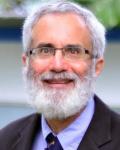10 May 2008 (Sat)
10.00am - 1.00pm
Merpati Hall, Level 3
Geylang East Public Library
50 Geylang East Avenue 1
Singapore 389777
MAP
Course Fee: $85.00
COURSE OBJECTIVE
Cooperative learning is by no means a new idea. For thousands of years, humans have recognised the value of cooperation in a broad range of endeavours, including education. However, the term cooperative learning seems to date back to the 1970s when a great deal of research and practical work began on discovering how best to harness peer power for the benefit of learning. This work continues to this day. Reading aloud by parents and teachers is a well-known practice for enhancing literacy. Many benefits have been proposed for reading aloud to students. This workshop aims to prepare teachers with ways to motivate students to read more and to speak more.
COURSE RATIONALE
Some students are not very interested in reading. Others who do read, do not read challenging or varied books. Combining cooperative learning with reading aloud by teachers can address these problems, because:
- Reading aloud by teachers can excite students to read more and to read a greater variety of books and other materials
- Cooperative learning involves more students in the discussions that take place before, during and after reading aloud by teachers, thereby encouraging more students to think and to talk
COURSE OUTLINE
This workshop introduces/reviews basic principles of cooperative learning:
1. Positive interdependence
2. Individual accountability
3. Equal opportunity to participate
4. Maximum peer interaction.
This workshop also reviews basic ideas as to how teachers should read aloud to students.
Then, various cooperative learning techniques are presented that can be used as part of a session in which teachers read aloud to their students. Teachers have a chance to experience these techniques first hand. The techniques are:
5. Exchange-A-Question
6. Circle of Speakers
7. Circle of Writers
8. Write-Pair-Switch
9. Everyone Can Explain.
TARGET AUDIENCE
For educator and parents of Primary school students and preschool children (K1 and K2), and anyone working to improve the language skills of learners at different levels.
About the Trainer: Dr George Jacobs

Dr George Jacobs has taught collaborative learning to a wide variety of teachers in Singapore, from teachers of lower primary students to teachers of adults. Furthermore, he has written many articles and books on collaborative learning, reading and related topics. George serves on the boards of the International Association for the Study of Cooperation in Education and the Extensive Reading Foundation. Currently, he teaches at James Cook University, as well as helping the Book Council.
Registration Details
Registration is on a first-come-first-served basis and workshop fees must be paid before the workshop. If the minimum number of participants is not met for the class, the organisers will inform all participants about possible postponement and cancellation, two weeks before the workshop date.
Cancellation & Substitution
The workshop can be cancelled or postponed two weeks before the workshop date if the minimum number of participants is not met. Participants will be fully refunded for workshops cancelled by us.
Participants who are unable to attend a workshop they have registered for are to inform us of the reason two weeks before the workshop date. They will be fully refunded in the event of extenuating and mitigating circumstances (E.g. illness, bereavement, accidents) . Those who inform us up to five (5) working days before the workshop date will receive a 50% refund. Participants can also attend another course at the same value within the same year.
Upon registration, you are deemed to have read and understood the cancellation, withdrawal and substitution policy and accept the terms contained therein.
